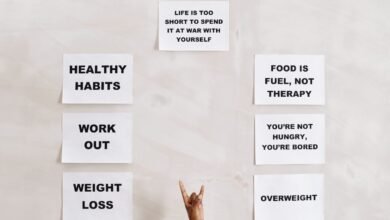20 Ways To Improve Your Personal Finances

Improving your finances is linked to happiness in life for most of us.
Though this statement is not true, improving your finances thus helps you let go of unnecessary pressures in life.
Like anything else in life, if you are not in pressing need of money you will be able to take decisions that you are afraid to take because of your dependence on money.
The purpose of this article is to share with you a few hacks or tips which will help you decrease your dependence on money.
If you force yourself into a starting point, you can make it into a habit easier. Once you have something, you’re going to struggle to want to part ways with it.
If you’re struggling to make ends meet, it may be time to take a closer look at your personal spending habits and make some adjustments to your budget.
Getting creative on how to do more with less is one of the best steps in creating a habit for your personal finances to even exist.
“Money is better than poverty, if only for financial reasons.” – Woody Allen
So, here are 14 ways how to improve your personal finances.
1. Use Cash
The best advice for anyone could be to use cash for all purchases you will make. Don’t use credit while in debt.
A debit card is fine unless it’s not associated with your overdraft account.
The idea is to never let yourself go beyond what you earn. You will be able to bargain as well while paying via cash. Remember the golden rule.
Debt = Expenses > Income
Savings = Income > Expenses
Managing your income and spending is key to improving your financial situation over time.
The key is to focus on managing your personal spending and maximizing your income.
2. Freeze your credit cards
Don’t use credit cards till you are in debt. You will never be able to come out of it. I would rather prefer that you freeze your credit cards.
Take a water bowl and put away your credit cards in it and put the bowl in the refrigerator. Sounds able? I’m sure you will earn plenty of rewards for this one wise action.
3. Pay towards savings as your first bill
People who earn through employment generally work in this pattern.
We pay taxes on what we earn, pay for our bills and enjoyments, and save whatever we are left with. Isn’t it?
Instead, since tax is inevitable, I suggest you save first. Pay your savings for your dream projects first and then spend whatever you are left with. This will automatically reduce your dependence on money. You will learn to live with less money.
4. Eat at home
This small tip can help you achieve fiscal and physical fitness. Eating at home is good for the pocket and heart.
Though I don’t mean to become a hermit and avoid chances of social interactions.
This means bringing to the office your own healthy lunch. This simple change can help you save around 2000 dollars a year. Double it up, if you are eating dinner outside as well.
5. Lend and Borrow
With the advent of e-commerce today, we focus on purchasing everything even when it does not add value to us especially a lot of novels.
Though, I buy a few classic novels now and then, lending and borrowing can re-ignite the spirit of sharing with others.
No wonder, you might receive from others what you are desperately looking to buy.
6. Exercise
Staying healthy can be the best gift you give to yourself. This one lifestyle change can help you avoid medical bills.
Try to exercise at least 4 times a week for 30 minutes.
7. Deploy the money workers
We all can’t work for more than 10-12 hours a day, but money can.
These workers can work 24×365. Use them to help you. These workers never get tired.
8. Understand the Magic of Compounding
No matter when you get enlightened to attain “financial freedom”, don’t delay it further. Starting to invest early will give you an edge.
Remember Warren Buffet again, he started investing at the age of 13! You can’t offset, as much as you want, the power of compounding by investing large sums of money later.
9. Shut the TV
When you are in deep debt it’s wise to shut off your TV and work to pay off your debt first.
Chances are that by avoiding most of the marketing ads you will help yourself not to buy a trendy gadget once again.
10. Cut out Cable TV subscription
Instead of watching anything mindless, choose what you want to watch. Feed the brain things you want it to. It’s easy to go with the flow and fall into the trap.
Better choose consciously what is best for your mind by assessing your situation. You will also save on the subscription cost you pay to these companies.
11. Go out and make real connections
No matter how silly it sounds; the social quotient has become important to measure to gauge people’s worthiness.
However, I still feel having one genuine real connection is far better than making 500 social connections.
No wonder, we are living in an age where we prefer to even date online. Making real connections helps you overcome unworthiness in life that will help you curb consumerism and money spent in filling the void you feel inside.
12. Pay debt first and spend the rest
After following point 3, I will suggest instead of spending it upon yourself try to pay towards your debt first and spend the rest.
To get a clear picture of your finances, you’ll need to account for all your expenses, including those little purchases that can add up over time.
So now the final order for healthy finances should be to pay towards your savings, pay your debts and spend whatever is left.
13. Budget is a Savior
No matter how cumbersome it sounds. Making a budget will only take time the first time. After the first budget, it will only require 30 minutes a month to maintain it.
If you want to get your personal finances in order, the first thing you need to do is start tracking your expenses and creating a budget.
Learn how to account for every dollar you spend and create a budget that works for you.
However, the invested time will be worthwhile and will give you a lot in return.
14. Make savings automatic
We all understand the importance of making and keeping commitments. That is why we try our hardest not to allow any EMI to be bounced.
We can apply the same concept to savings. Make your savings transfer auto-debit like an EMI and the chances are you will keep the promise and your financial situation will improve.
15. Teach yourself about marketing
You need to train in a very subtle way, advertisements force us to buy things we later regret buying.
Understand the principles behind how credit card companies force us to buy things by pitching in with clever marketing punches.
Teach your kids also about it and chances are you will save a lot in the longer run.
16. Buy assets, not liabilities.
Buy things that make money for you: stocks, real estate. Don’t buy things that don’t make money: clothing, fancy cars, etc.
Whether you’re looking to pay off debt, save for a big purchase, or just get a better handle on your finances, starting with a solid financial plan is essential.
17. Don’t buy assets you don’t understand.
When your friends at the bank try to sell you a complicated financial instrument that you don’t understand, chances are it’s a bad apple.
18. Make more money, not save more money.
No one increases their net worth by saving. They increase by making more money.
It’s never too early or too late to start improving your personal finances and taking control of your money can make a huge difference in your life.
19. People who look rich are poor. People who look poor are rich.
People who drive fancy cars and flaunt their supposed wealth are probably not that wealthy.
To take control of your finances and start building wealth, it’s essential to track your expenses, set financial goals, and create a budget that aligns with your priorities.
No matter where you are on your financial journey, starting to account for your spending and creating a budget is the first step toward achieving your goals.
20. Save 10% every month.
People who don’t have money saved are one disaster away from a debt spiral. They can lose their job or get an accidental medical bill and resort to high-interest debt. Don’t be those people.
“I never invest in anything that I don’t understand” – Warren Buffett



